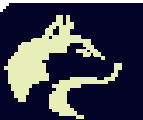Team:Washington
From 2010.igem.org
| (132 intermediate revisions not shown) | |||
| Line 1: | Line 1: | ||
| - | __NOTOC__ | + | __NOTOC__{{Template:Team:Washington/Templates/Header}}<html><script type="text/javascript"> |
| - | {{Template:Team:Washington/Templates/Header}} | + | |
| - | <html> | + | |
| - | <script type="text/javascript"> | + | |
$(function() { | $(function() { | ||
var mainimg = document.getElementById("mainimg"); | var mainimg = document.getElementById("mainimg"); | ||
| Line 23: | Line 20: | ||
}); | }); | ||
</script> | </script> | ||
| - | <img id=" | + | <img src="https://static.igem.org/mediawiki/2010/b/be/Uwb.gif" alt="21stCenturyAntibioticsBanner" usemap="#bannermap" /> |
| + | <map id="bannermap" name="bannermap"> | ||
| + | <area shape="rect" alt="START button" title="Explore the Wiki" coords="384,258,447,279" href="https://2010.igem.org/Team:Washington/Gram_Negative"/> | ||
| + | <area shape="rect" alt="Player 1 Gram(-)" title="Gram(-) Therapeutic" coords="343,281,493,300" href="https://2010.igem.org/Team:Washington/Gram_Negative"/> | ||
| + | <area shape="rect" alt="Player 2 Gram(+)" title="Gram(+) Therapeutic" coords="343,302,492,320" href="https://2010.igem.org/Team:Washington/Gram_Positive"/> | ||
| + | <area shape="poly" alt="Gram(+) Side" title="Gram(+) Therapeutic" coords="329,269,326,319,279,350,5,349,5,6,165,6,146,88,165,99,170,131,139,164,140,197,174,211" href="https://2010.igem.org/Team:Washington/Gram_Positive"/> | ||
| + | <area shape="poly" alt="Gram(-) Side" title="Gram(-) Therapeutic" coords="507,269,509,322,546,350,793,350,793,3,689,4,673,23,681,76,660,116,648,168,655,197,623,248" href="https://2010.igem.org/Team:Washington/Gram_Negative"/> | ||
| + | </map> | ||
</html> | </html> | ||
<br /> | <br /> | ||
| - | + | While vital to our quality of life, traditional antibiotics face the serious | |
| + | problems of widespread bacterial resistance and destruction of natural gut | ||
| + | flora - problems which call for improved twenty-first century antibiotics. | ||
| + | Using synthetic biology tools, we designed, built, and tested two new | ||
| + | systems to fight infections by both broad types of bacteria - Gram-positive | ||
| + | and Gram-negative. Our first project targets ''Bacillus anthracis'', the | ||
| + | Gram-positive pathogen that causes anthrax. We re-engineered an enzyme to | ||
| + | remove the pathogen's protective coating, rendering it defenseless against | ||
| + | the immune system. In our second project, we re-engineered and transplanted | ||
| + | a protein secretion system capable of combating Gram-negative bacteria into | ||
| + | ''E. coli''. This system was designed to target Gram-negative pathogens in a | ||
| + | modular and controllable fashion. These two systems are the vanguard of a | ||
| + | new era of antibiotics using the power of nature harnessed with the tools of | ||
| + | synthetic biology. | ||
| + | <!---------------------------------------PAGE CONTENT GOES ABOVE THIS----------------------------------------> | ||
| - | == | + | <div style="text-align:left"> |
| + | <center> | ||
| + | '''[[Team:Washington/Gram_Negative|Gram(-) Therapeutic]]''' | ||
| + | | ||
| + | '''[[Team:Washington/Gram_Positive|Gram(+) Therapeutic]]''' | ||
| + | </center> | ||
| + | <div style="text-align:right"> | ||
| - | |||
| - | |||
| - | |||
| - | |||
| - | |||
| - | |||
</div> | </div> | ||
{{Template:Team:Washington/Templates/Footer}} | {{Template:Team:Washington/Templates/Footer}} | ||
Latest revision as of 01:14, 28 October 2010

While vital to our quality of life, traditional antibiotics face the serious
problems of widespread bacterial resistance and destruction of natural gut
flora - problems which call for improved twenty-first century antibiotics.
Using synthetic biology tools, we designed, built, and tested two new
systems to fight infections by both broad types of bacteria - Gram-positive
and Gram-negative. Our first project targets Bacillus anthracis, the
Gram-positive pathogen that causes anthrax. We re-engineered an enzyme to
remove the pathogen's protective coating, rendering it defenseless against
the immune system. In our second project, we re-engineered and transplanted
a protein secretion system capable of combating Gram-negative bacteria into
E. coli. This system was designed to target Gram-negative pathogens in a
modular and controllable fashion. These two systems are the vanguard of a
new era of antibiotics using the power of nature harnessed with the tools of
synthetic biology.
 "
"
